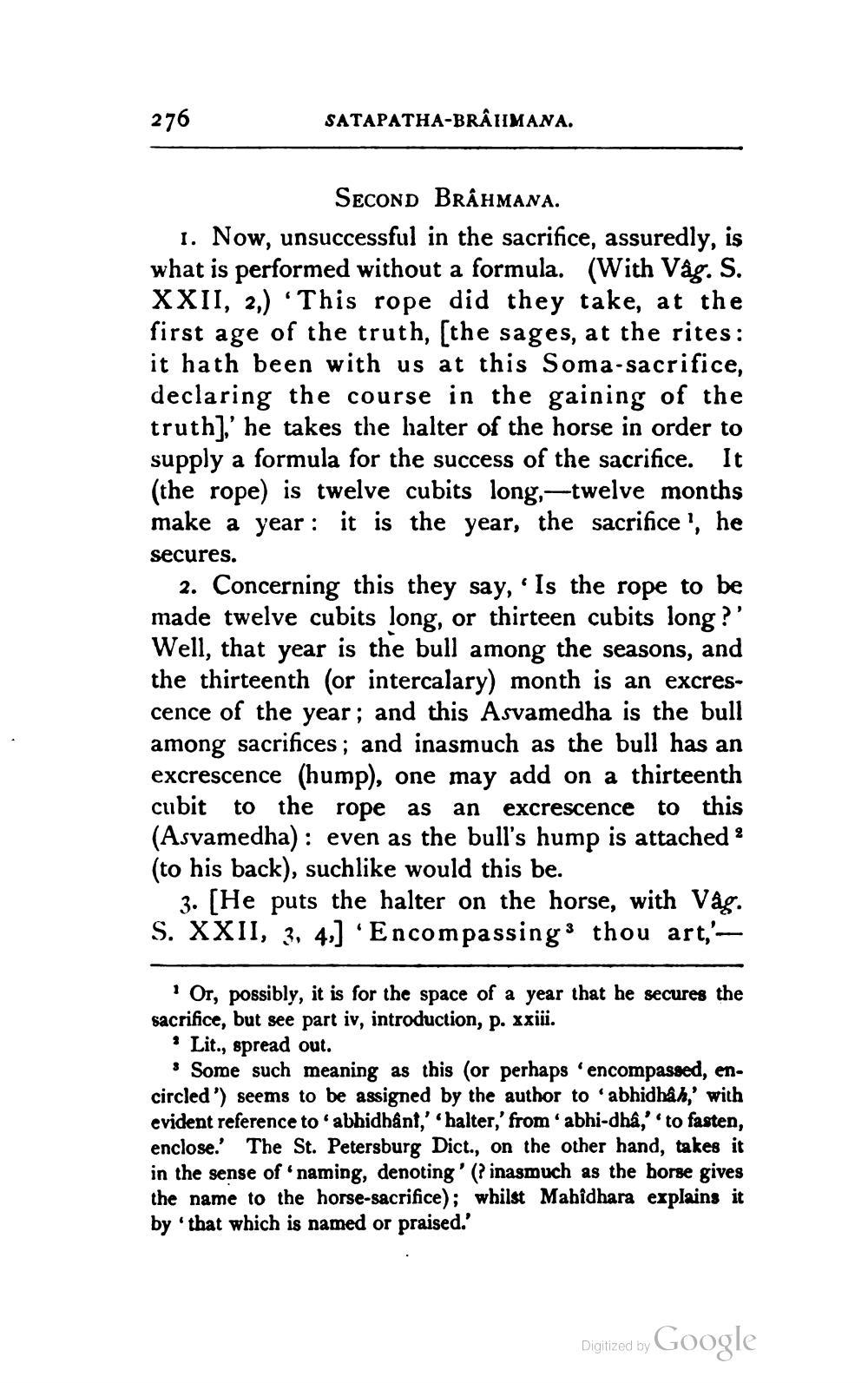________________
276
SATAPATHA-BRÂUMANA.
SECOND BRÂHMANA. 1. Now, unsuccessful in the sacrifice, assuredly, is what is performed without a formula. (With Våg. S. XXII, 2,) “This rope did they take, at the first age of the truth, (the sages, at the rites: it hath been with us at this Soma-sacrifice, declaring the course in the gaining of the truth],' he takes the halter of the horse in order to supply a formula for the success of the sacrifice. It (the rope) is twelve cubits long, -twelve months make a year : it is the year, the sacrifice!, he secures.
2. Concerning this they say, 'Is the rope to be made twelve cubits long, or thirteen cubits long?' Well, that year is the bull among the seasons, and the thirteenth (or intercalary) month is an excrescence of the year; and this Asvamedha is the bull among sacrifices; and inasmuch as the bull has an excrescence (hump), one may add on a thirteenth cubit to the rope as an excrescence to this (Asvamedha) : even as the bull's hump is attached ? (to his back), suchlike would this be.
3. [He puts the halter on the horse, with Våg. S. XXII, 3, 4,] 'Encompassing: thou art -
1 OT, possibly, it is for the space of a year that he secures the sacrifice, but see part iv, introduction, p. xxiii. . Lit., spread out.
Some such meaning as this (or perhaps encompassed, en. circled') seems to be assigned by the author to abhidhåh,' with evident reference to abhidhânt,'halter,' from abhi-dha,''to fasten, enclose.' The St. Petersburg Dict., on the other hand, takes it in the sense of naming, denoting' (? inasmuch as the borse gives the name to the horse-sacrifice); whilst Mabidhara explains it by that which is named or praised.'
Digitized by Google




